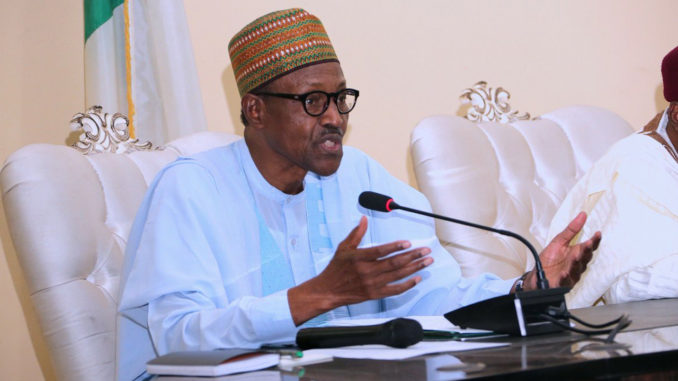
President Buhari seized the opportunity of another trip outside the country to weigh in on matters of serious importance to the economy and society. And, once again, reactions to the president’s comments are unlikely to have been what he intended.
A youthful phalanx has taken umbrage, if postings on social media are anything to go by, at the president’s depiction of Nigerian youth as simply in a hurry to board the crude oil export-fueled gravy train. There is indeed general outrage at the president’s assertion that the youth “sit and do nothing, and get housing, healthcare and education free.”
In an election year, it was also only to be expected that opposition to the ruling party’s husbandry of the economy would hitch their wagons to the groundswell of anger at the president’s seeming lack of tact. None of this has been helped by attempts to parse the president’s comments as reference to a small coterie only of our youth or that he did not use the word ‘lazy’. If they sit and do nothing, the ordinary meaning of the phrase is that they are indeed lazy and no amount of PR can erase that.
The president needs to learn that foreign trips should not be the occasion to demarket Nigeria. In any case, the youth have voice and they are talking about what they feel.
It is nonetheless useful to address the substantive issues the president was speaking to. He correctly identified two key problems with the Nigerian economy: unacceptably high levels of youth unemployment; and the increasingly unsuitable skillsets of our young school leavers (especially at the primary and secondary levels) for the demands of the modern workplace.
Depending on whose numbers you use, a little over 80 percent of our population is under 40 years old. More than a third, below 35 years old, and a fifth would just be out of the university. Of the cohort under 40 years old, two-thirds were unemployed as at end-September 2017, while 73.5 percent were underemployed.
With adult literacy (the percentage of people aged 15 years and above) at 51.1 per cent, and youth literacy (the percentage of Nigerians aged 15 to 24 years) at 66.4 per cent, there are more formally qualified young Nigerians out of work than there are older similarly qualified Nigerians out of work.
Is this a supply problem? In other words, is the economy’s job-seekers-to-job-openings ratio in favour of job seekers? Or do we confront a demand problem? In which instance, a bad case of indolence has left significant portions of the youth workforce uninterested in taking up available jobs?
On the one hand, an economy only now emerging from five consecutive quarters of shrinking output growth is unlikely to have created enough jobs for the large numbers of youth that leave our schools each year. On the other hand, counsels to the youth enjoining them to be more entrepreneurial, especially as farmers, ignore the often-insurmountable difficulties associated with doing business in the country.
Thus, the president evidently mischaracterised the problems with youth unemployment in the country. And he therefore makes the design of appropriate mitigants that much more difficult. The challenges before the Nigerian economy are two-fold. First is to improve the structure of the economy in a way that drives private sector supply responses. This is as much about improving the efficiency of the public bureaucracy as it is about updating domestic infrastructure in a way that improves investment choices.
Then, there is the much bigger task of ensuring that the nation’s most important asset ― its people ― are continuously employable at levels consistent with the needs of a rapidly evolving global economy.
Both the task of driving reforms that lead to an outward shift in the economy’s production possibility frontier and the future-proofing of our youth, are clear public policy responsibilities, which the incumbent administration has, as indicated by the president’s latest comments, largely observed in the breach.
While this may explain the acerbity of the backlash to the president’s comments, by inviting debate around these issues in the run up to general elections next year, the president may have contributed and kicked off a process that helps us attain clarity on the economy’s next priorities, and how these may be best sequenced.
END

Be the first to comment